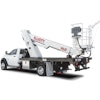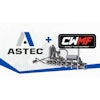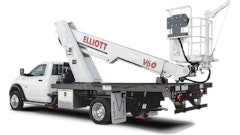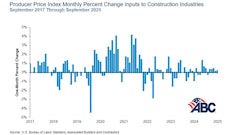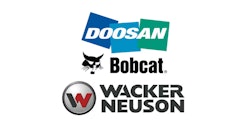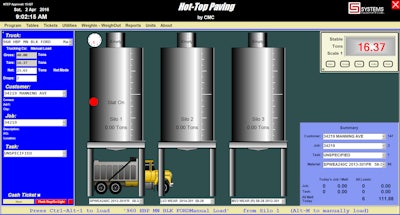
Over the last year, I have been to over 60 asphalt plants in three countries to troubleshoot ongoing problems. These problems range from the simple like calibrations to the more difficult, like failing sample results from mix testing. Most of the time these are short trips with solutions readily recognizable to me after 43 years of plant experience.
But several times in 2015, I came across a problem that baffled me for a while until I came to recognize the cause. For reasons that will become apparent by the end of this narrative, I am going to create a fictional company. For three different companies I worked with last year, however, the circumstances were all too real. While the company is fictional, everything else is true.
In December, I received a call from "Bill," the owner at "Hot-Top Paving" who was having a problem for a few years with oil content not matching expected output, and 2015 had been his worst year yet. This year the AC oil inventories were not mathematically close to tallying with known production. He explained that they were producing approximately 180,000 tons of mix per year. They were running six days a week, 50 weeks a year with two weeks out for scheduled maintenance. During the past year they’d paved about 100,000 tons for their own use and 80,000 tons for outside sales to small pavers in the area.
At Hot-Top, internal jobs ran the gamut from city streets, state highways and federal work, to big box parking lots and even included residential driveways. They had their own well equipped Superpave & Marshall test lab. As a result of this they had reams of recorded test data from the years previous.
I spent several days going over aggregate sample trends and oil content results. I noticed that on the rare occasion they would have a sample out, but in reality their track record was quite enviable. Almost all of their mix was at a 4.8% of virgin oil after 25% RAP inclusion. So this made me wonder if the company was sweetening up the oil for their commercial sales in response to the requests of their outside sales customers requests. As we all know, there is NEVER enough heat or oil in the mix to make the small, private pavers happy.
By my calculations the company should have AC delivery certifications for roughly 8,700 tons of liquid for the year. Instead, they had receipts for 9,900 tons of oil. This works out to a projected yearly tonnage of a little over 206,000 tons, not the 180,000 tons that I had been told. Someplace along the way we were missing more than 26,000 tons of mix. Where was the missing product? I knew the plant calibrations were right. Could this be waste at the plant? I doubted it.
Up to this point I had not been out to the plant, instead concentrating on analytical investigation. I arranged with Bill to go to the asphalt plant for a few days to perform an Operational Audit. Typically I will analyze plant operations and make recommendations based on what I see that can be improved, like Start-Up/Shut-Down waste reduction, on-going fuel usage, safety protocols and in general, basic plant daily operations.
The 350-tph counterflow drum plant had a four-person crew. A loader man, a ground man and two plant operators who, ironically, knew who I was from reading my writings in Asphalt Contractor and other places.
One of the operators ran the plant while the other operated the load-out system, dispatched trucks and generally oversaw operations. He used a pneumatic tube to send tickets out to the trucks. He was a busy man. Both men were friendly and open to my presence, however I sensed a bit of nervousness from them. I am used to this because one of the first problems I have at a lot of plants is convincing the operator that I am not there to replace them. I am there to HELP them.
The first day I was there, the plant made about 4,000 tons of mix across the scales. The guys had their Start-Up/Shut-Down sequencing near perfect with a minimum of wasted rock. I was happy with the basic operations.
During the day, however, I noticed a certain trend. Occasionally the plant operator would launch into his personal life story, telling me about his last vacation or what he wanted to do the next weekend. After about five such incidents, I noticed that each time he started talking, the load-out operator would hand deliver the ticket to the truck below and then come back up to the control room. This went on all day. I got the distinct impression that I was being purposefully distracted, which made me suspicious.
The next day was a mirror image of the first day. Except this time, I made a point of glancing surreptitiously at the load-out each time. It happened to be a Systems WIN-LC3000, which I'm very familiar with it as a dealer. I noticed that the load-out operator was just making a duplicate ticket of his last charge sale. Making it for my benefit, apparently so that I would see a transaction taking place. But the sale was not registering anywhere in the daily totals. Now I was starting to get it.
They were stealing the proceeds somehow. I watched operations for two more days, now working to identify the cash customers that were being served under the table. I kept up the friendly façade, because I needed them to think that I had no idea of their thefts. I acted ignorant on how the load-out functioned and was careful not to mention that I noticed that there were three companies that the load-out operator was selling mix to off the books. I saw over 400 tons that were unaccounted for leave the plant in those four days. At $68 per ton, those two guys pocketed over $27,000 to split. I hate thieves.
The next day I met with Bill and told him what I thought was going on. He started with outraged denial, mad at me instead of the circumstances. Both the operators were relatives and had worked for the company for years and would never steal from him. So I asked him when he first noticed the discrepancies at the plant. He was quiet for quite a while, then finally asked me, “What do we do?”
I suggested that we get a security company to install hidden cameras in the control house that Sunday while everyone was away. We could then tie that feed back to his office computer and record operations. I would stay at his office and point out the trucks that had been getting the special treatment.
We watched for the whole day Monday. The truck drivers I had identified earlier would come up to the control room, pay a discounted price in cash and leave without a ticket of any kind. As we watched the camera feeds, the two operators would split the cash, pocket it and go on as if it was a normal thing. I could see the pain in Bill’s face as he watched. I felt sorry for him. These guys were his family, stealing his money.
Bill turned the video file over to the local district attorney. The two guys were arrested within a week and charged. I ended up running the plant and training a new crew over the next month. The cameras stayed in place and Bill now monitors operations a lot closer. He also doesn’t sell hot mix to the companies who were knowingly participating in the thefts.
Over the last year I have helped three different companies root out this kind of theft. If your company has cash customers, I suggest trusting no one. Cameras are your friend. Even the knowledge that those cameras exist can reduce the temptation to do something stupid. The only reason Bill’s guys got caught and ended up in prison is they got greedy. These two thieves stole over $1,000,000 from him that he knows about. Had they kept the thievery to a minimum they may have gotten away with it forever.

